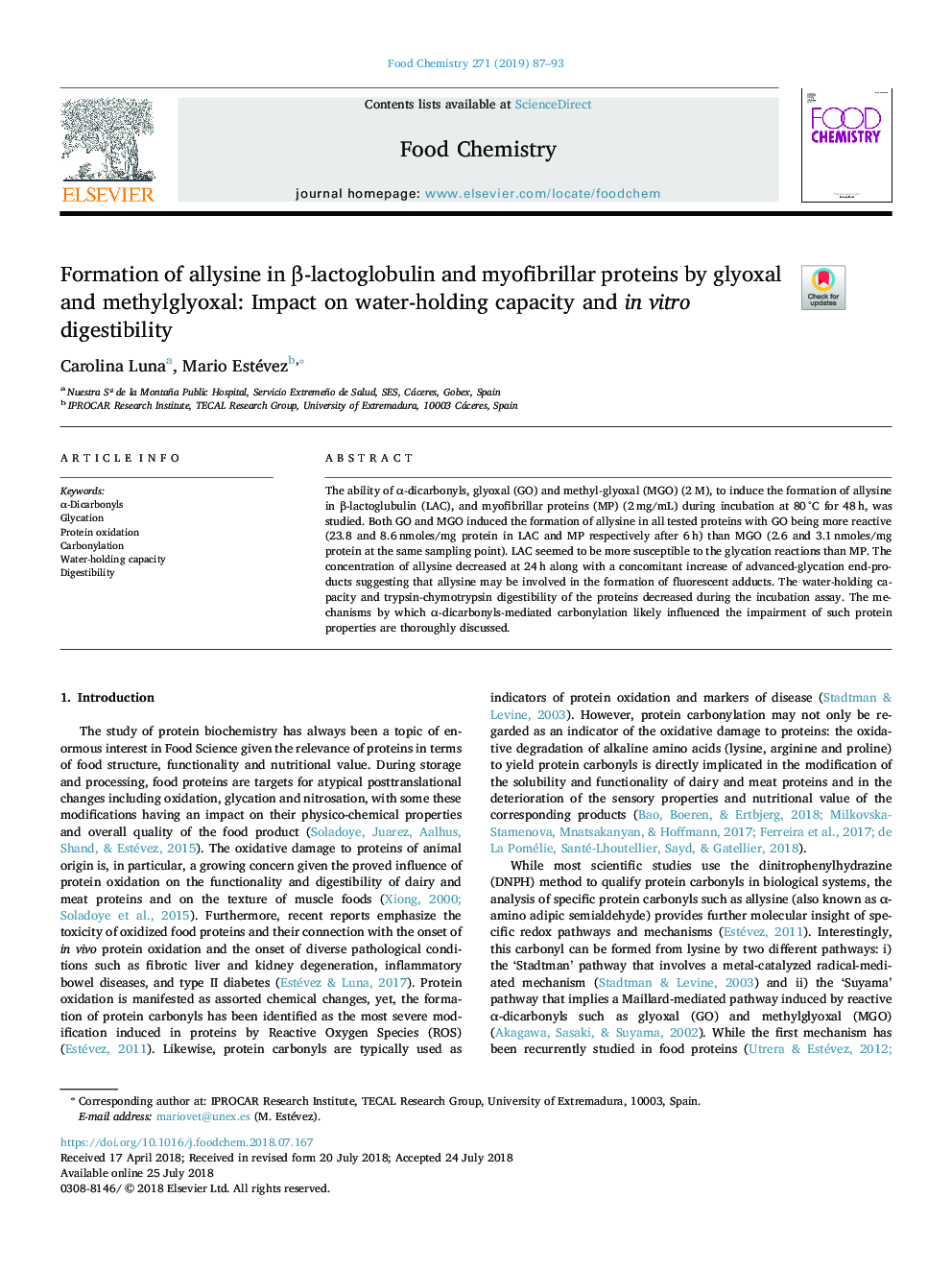| Article ID | Journal | Published Year | Pages | File Type |
|---|---|---|---|---|
| 7583785 | Food Chemistry | 2019 | 7 Pages |
Abstract
The ability of α-dicarbonyls, glyoxal (GO) and methyl-glyoxal (MGO) (2 M), to induce the formation of allysine in β-lactoglubulin (LAC), and myofibrillar proteins (MP) (2â¯mg/mL) during incubation at 80â¯Â°C for 48â¯h, was studied. Both GO and MGO induced the formation of allysine in all tested proteins with GO being more reactive (23.8 and 8.6â¯nmoles/mg protein in LAC and MP respectively after 6â¯h) than MGO (2.6 and 3.1â¯nmoles/mg protein at the same sampling point). LAC seemed to be more susceptible to the glycation reactions than MP. The concentration of allysine decreased at 24â¯h along with a concomitant increase of advanced-glycation end-products suggesting that allysine may be involved in the formation of fluorescent adducts. The water-holding capacity and trypsin-chymotrypsin digestibility of the proteins decreased during the incubation assay. The mechanisms by which α-dicarbonyls-mediated carbonylation likely influenced the impairment of such protein properties are thoroughly discussed.
Related Topics
Physical Sciences and Engineering
Chemistry
Analytical Chemistry
Authors
Carolina Luna, Mario Estévez,
